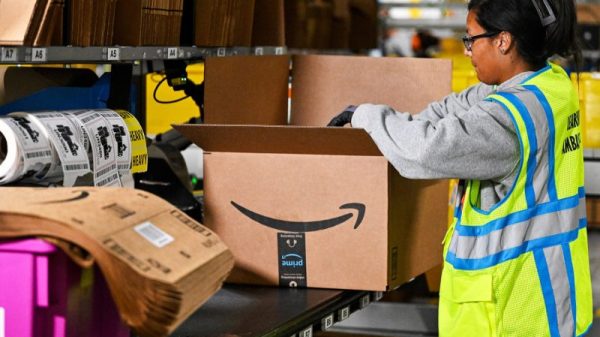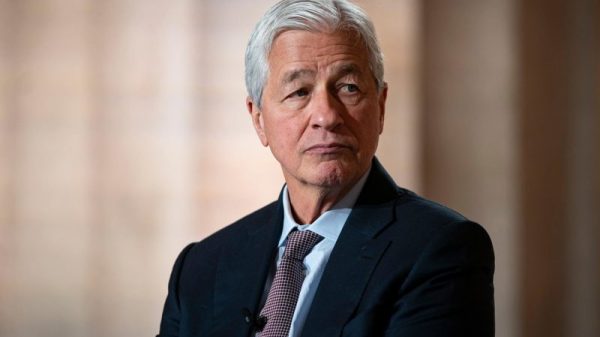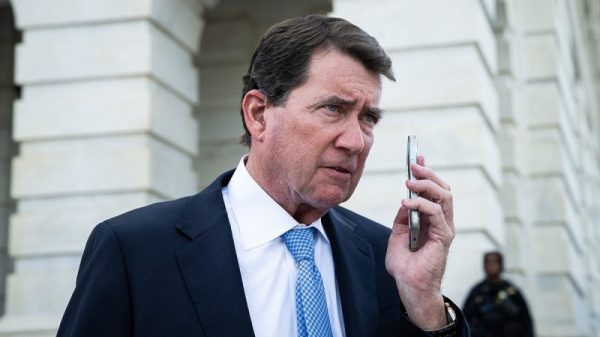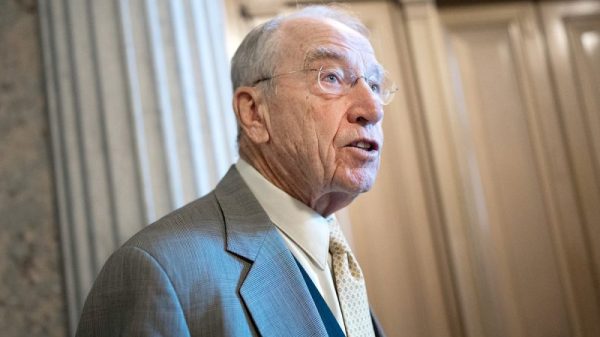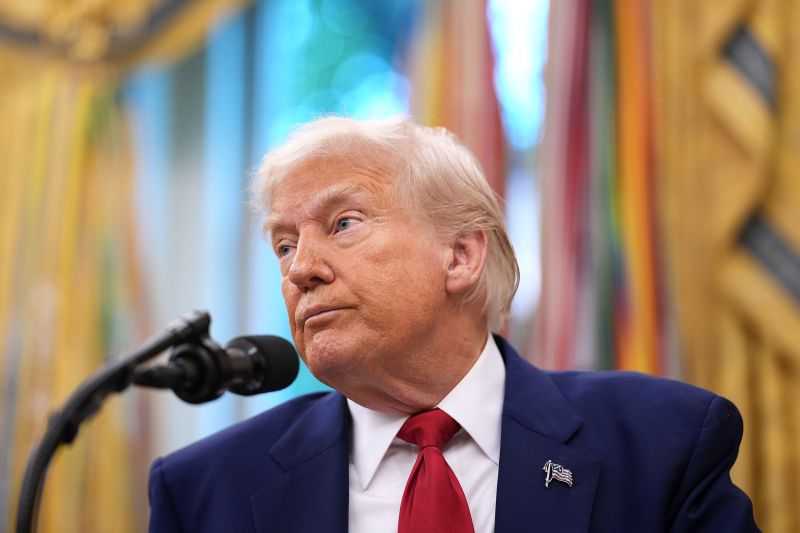A one-two punch from the United States risks shattering the already fragile trade war truce between Washington and Beijing, with Chinese tech companies and students both dealt shock blows by the Trump administration Wednesday night.
Viewed from within China, things had been looking up after the world’s two largest economies agreed to dramatically roll back steep tariffs – a conciliatory step in a trade war that had threatened the entire global trading system.
Factories started whirring again. Long-delayed shipping containers began leaving Chinese ports, destined for the US. Chinese media celebrated the agreement as a national victory, while top officials adopted an upbeat tone in describing cooperation between the two superpower rivals.
But the two jabs from Washington on Wednesday will have far-reaching effects across China, angering families and authorities alike. They also throw into question the future of US-China trade talks; the temporary truce only lasts 90 days, and the clock is ticking to reach a longer-term agreement.
The first hit came in a Financial Times report on Wednesday that said moves by US President Donald Trump had effectively cut off some American companies from selling software used to design semiconductors to China.
These small chips – which power our smartphones, computers, automobiles and home appliances – have been at the fore of the US-China tech battle in recent years. The Biden administration had blocked China from accessing US-made semiconductors, and earlier this month, Washington warned companies against using AI chips made by Chinese tech giant Huawei.
The obstacles were infuriating for Beijing, especially since it has poured tens of billions of dollars into its semiconductor industry, aiming to boost production at home and become less reliant on the US and other countries.
But it was the second blow from the White House that landed right in the living rooms of Chinese families, with US State Secretary Marco Rubio saying the US will “aggressively revoke visas for Chinese students” – especially those in critical fields or with connections to the Chinese Communist Party.
It’s hard to overstate the impact. There were more than 270,000 Chinese students in the US in 2024, and even more before the pandemic. While some hail from China’s political and business elites, many also come from middle-class families.
The path to the US is attractive, but arduous. Chinese families save for years and spend exorbitant amounts of money to send their kids abroad, with students attending cram schools or hiring tutors to polish their applications. Rubio’s announcement jeopardizes all of that – with students now facing potential deportation in the middle of their hard-won education.
Given China is a one-party state that reaches deep into nearly every aspect of society, it can be difficult or impossible for many students to disprove any claims that they’re connected to the Communist Party – especially if the State Department defines that term loosely.
A spokesperson for China’s foreign ministry said on Thursday it “strongly opposes” the move, accusing the US of “unjustly” revoking visas “under the pretext of ideology and national security.”
Candy, a statistics student at the University of Michigan, who did not want to give her full name, said she feared her visa would be canceled before she graduates.
“Ending up with only a high school diploma is something I dread,” she said from China, where she’s visiting family. “I pray to make it through my undergraduate study safely and smoothly.”
“When I first heard the news, I wanted to curse Trump.”
While the visa threat comes as a shock, some argue the targeting of students may in fact be a boon to China in the end.
The number of Chinese students in the US had been declining in recent years, partly because of significant shifts in both policy and public perception. Experts say many Chinese students and families now worry about safety, racism and discrimination, and immigration difficulties in the US – especially as more competitive higher education options open in other countries, including in China itself.
Trump’s crackdown could see more Chinese scholars, including some of the brightest minds in their fields, return to their home country – or choose to stay in the first place, rejecting a US education for a Chinese degree instead.
And these researchers – including key leaders in technological fields – could be the key to China catching up with, or surpassing the US – the very thing many Trump officials are trying to prevent.
Wednesday did bring one bit of good news for China; a federal court blocked Trump from imposing most of his global tariffs, including the current 30% tariffs on China. But the administration immediately appealed the decision, leaving the status of those tariffs – and the trade war – up in the air.









